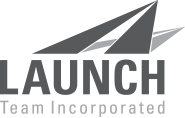
FAQ - New Tariff Increase
As we continue to learn more about the impact of tariff increases on companies, we asked attorney Casey E. Holder of BakerHostetler for answers to some common questions:
Will we avoid the tariff if we are shipping directly from China to customers in other countries (ie: Canada)?
Yes, a US based company can drop ship its products from China to its customer in Canada and would not have to pay the tariffs, as the product never enters the customs territory of the U.S. No U.S. tariffs would be owed unless and until the product is imported into the United States.
What are some other ways to mitigate the impact of tariffs on our business?
You can minimize tariff exposure in several ways. Tariff engineering refers to making sure your products are classified correctly. Some businesses find that their classifications are incorrect, and so they are not subject to the same tariffs. Operational engineering refers to the practice of changing the legal country of origin on a product based on substantial transformation of components. Other methods include utilizing of bonded warehouses and foreign trade zones, or taking advantage of duty drawbacks.
What constitutes a "substantial transformation" of product components?
Customs & Border protection makes its evaluations on a case-by-case basis, but the primary factors for consideration include: component country of origin, the extent of processing taking place within a country, and whether the results of said processing result in a product with a new name, character, and use. Further details on this topic are available here: Substantial Transformation Primer PDF
What is a bonded warehouse?
A bonded warehouse is a customs-controlled facility where goods can be stored or sometimes undergo manufacturing operations before any duty is paid. Products can be held for up to 5 years. No duty is owed unless and until the goods enter the commerce of the United States.
What is a foreign trade zone?
A foreign trade zone or FTZ is similar to a bonded warehouse, where goods can be housed and undergo manufacturing operations without duty being owed. Unlike bonded warehouses, FTZs are considered to be outside the customs territory of the U.S. Additionally, while only dutiable products can be held in a bonded warehouse, non-prohibited merchandise of any type can be held in an FTZ. The level of product manipulation or manufacturing operations is less restricted in an FTZ than a bonded warehouse, and the time a product may spend in an FTZ is indefinite, as opposed to the five year limit imposed on bonded warehouses. More info on FTZs and bonded warehouses is available here: FTZ and Bonded Warehouse Primer PDF
What is duty drawback?
Goods that are imported into the U.S. and then subsequently exported may be entitled to a refund of 99% of duties and fees. Drawbacks on goods must be claimed within 3 years of export. There are 3 categories of duty drawback available, for Manufacturing, Unused Merchandise and Rejected Merchandise. More details on duty drawbacks and the specifics of each category can be found here: Duty Drawback Primer PDF
If you would like to talk through specific communication strategies for your team, contact Launch Team.
If you are seeking legal advice on this topic, reach out to attorney Casey Holder .
